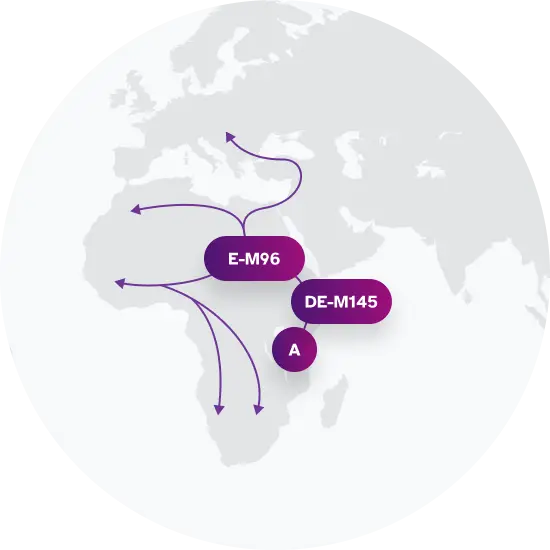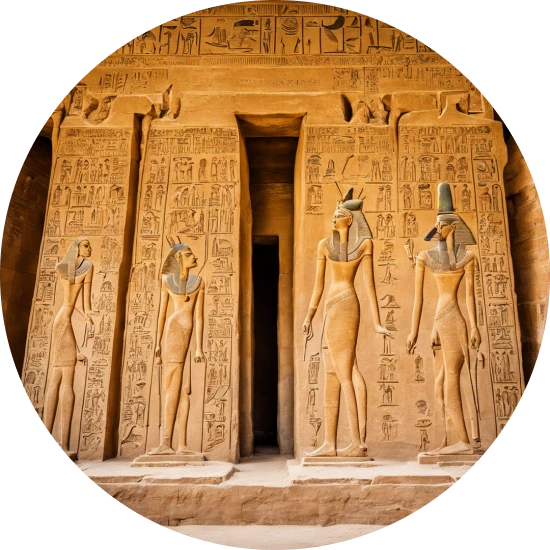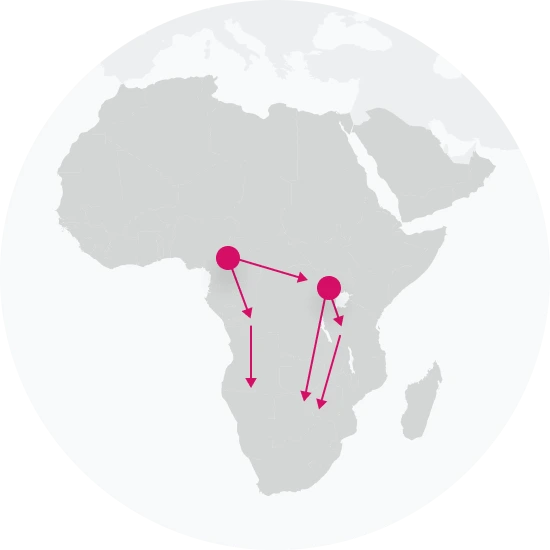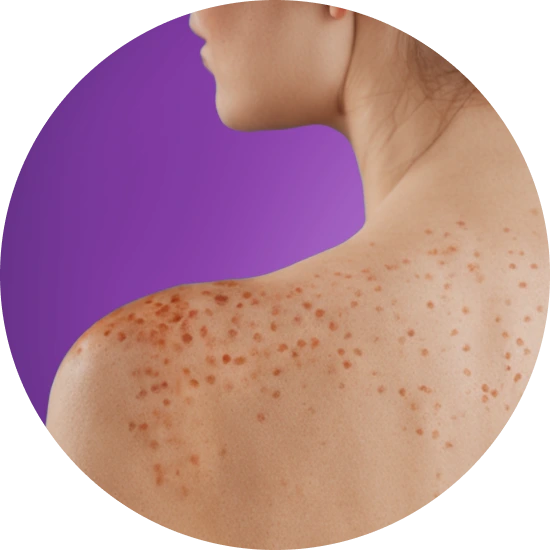Explore the Family Name Muhammad
How common is the last name Muhammad in the United States?
Based on the Decennial U.S. Census, the surname Muhammad has seen a significant increase in popularity from 2000 to 2010. The ranking of the surname rose from 2379 in 2000 to 1884 in 2010, marking a substantial change of 20.81%. Likewise, the count of individuals bearing this surname also increased from 13,972 to 19,076 during the same period, a rise of 36.53%. This implies that the proportion of Muhammad per 100,000 people grew by 24.9%, from 5.18 in 2000 to 6.47 in 2010.
| 2000 | 2010 | Change | |
|---|---|---|---|
| Rank | #2,379 | #1,884 | 20.81% |
| Count | 13,972 | 19,076 | 36.53% |
| Proportion per 100k | 5.18 | 6.47 | 24.9% |
Race and Ethnicity of people with the last name Muhammad
The ethnic identity associated with the surname Muhammad also witnessed some noteworthy shifts from 2000 to 2010, according to the Decennial U.S. Census. The largest portion of Muhammads identifies as Black, although their percentage decreased slightly from 86.09% to 82.86%. Individuals of Asian/Pacific Islander heritage showed the most significant growth rate, increasing from 4.40% to 7.54%. Meanwhile, the proportion of Muhammads of Hispanic origin rose by 47.03%, and those identifying as White increased by 12.10%. Conversely, the figures for those of two or more races, and American Indian and Alaskan Native descent, dropped by 21.25% and 15.79% respectively.
| 2000 | 2010 | Change | |
|---|---|---|---|
| Black | 86.09% | 82.86% | -3.75% |
| Asian/Pacific Islander | 4.4% | 7.54% | 71.36% |
| Two or More Races | 4.8% | 3.78% | -21.25% |
| White | 2.48% | 2.78% | 12.1% |
| Hispanic | 1.85% | 2.72% | 47.03% |
| American Indian and Alaskan Native | 0.38% | 0.32% | -15.79% |
Muhammad ancestry composition
23andMe computes an ancestry breakdown for each customer. People may have ancestry from just one population or they may have ancestry from several populations. The most commonly-observed ancestry found in people with the surname Muhammad is Nigerian, which comprises 30.5% of all ancestry found in people with the surname. The next two most common ancestries are Ghanaian, Liberian & Sierra Leonean (18.5%) and British & Irish (13.6%). Additional ancestries include Angolan & Congolese, Northern Indian & Pakistani, Senegambian & Guinean, French & German, and Spanish & Portuguese.
Ready to learn more about your ancestry? Get the most comprehensive ancestry breakdown on the market by taking our DNA test. Shop 23andMe
| ANCESTRY BREAKDOWN | COMPOSITION |
|---|---|
| Nigerian | 30.5% |
| Ghanaian, Liberian & Sierra Leonean | 18.5% |
| British & Irish | 13.6% |
| Other | 37.4% |

Possible origins of the surname Muhammad
Your DNA provides clues about where your recent ancestors may have lived. Having many distant relatives in the same location suggests that you may all share common ancestry there. Locations with many distant relatives can also be places where people have migrated recently, such as large cities. If a large number of individuals who share your surname have distant relatives in a specific area, it could indicate a connection between your surname and that location, stemming from either recent ancestral ties or migration.
Based on 23andMe data, people with last name Muhammad have recent ancestry locations all within the United Kingdom of Great Britain and Northern Ireland.
| RECENT ANCESTRY Location | Percentage |
|---|---|
| Merseyside, United Kingdom | 23.70% |
| Greater London, United Kingdom | 23.70% |
| Greater Manchester, United Kingdom | 23.70% |
| Glasgow City, United Kingdom | 23.30% |
| West Midlands, United Kingdom | 22.00% |
What Muhammad haplogroups can tell you
Haplogroups are genetic population groups that share a common ancestor on either your paternal or maternal line. These paternal and maternal haplogroups shed light on your genetic ancestry and help tell the story of your family.
The top paternal haplogroup of people with the surname Muhammad is E-P252, which is predominantly found among people with Sub-Saharan African ancestry. Haplogroup E-P252 is descended from haplogroup E-M96. Other common haplogroups include E-M4254 and E-U290, which are predominantly found among people with Sub-Saharan African and Sub-Saharan African ancestry. Other surnames with similar common haplogroups are: Washington, Jefferson, Pierre, Bey, Charles, Alston, Mccray, Samuels, Bolden, Goins.
The most common maternal haplogroups of people with Muhammad surname are: L1b1a, M, H. These most commonly trace back to individuals of European and Sub-Saharan African ancestry.
 Paternal Haplogroup Origins E-M96
Paternal Haplogroup Origins E-M96
Your paternal lineage may be linked to Ramesses III
Pharaoh Ramesses III defended Egypt in three consecutive wars during his approximately 30-year reign, but provoked dissent within his administration. Catalyzed by mounting internal strife, one of Ramesses's lesser wives, Tiye, hatched a plot to have her son, Pentawer, usurp the throne by having Ramesses III murdered along with his appointed heir. A papyrus record of the resulting trial explains that the plot failed and that all involved were tried and convicted.However, a modern CT scan of Ramesses III's mummy revealed a deep slit in his throat, reopening a case long thought closed. The embalmers went to great lengths to cover up other wounds, including fashioning a fake toe out of resin where Ramesses's real one had been hacked off, likely during a fatal attack. For thousands of years, Ramesses's burial adornments concealed the wounds that mark one of the most famous royal dramas in history. Ramesses III's paternal lineage belongs to haplogroup E-V38.
Your maternal lineage may be linked to speakers of the Bantu language family
About 5,000 years ago, many people in sub-Saharan Africa still relied on hunting, gathering, and foraging as their main means of collecting food. But that was soon going to change. People in West-Central Africa began experimenting with agriculture, cultivating the yams, legumes, peppers, and gourds that would became staples of sub-Saharan African diet. These people spoke languages belonging to the Bantu language family, and about 4,000 years ago they began to move.First, they headed east across the central rainforest. Eventually, the descendants of these migrants arrived at the farthest reaches of southern Africa. Later, other Bantu speakers who had remained in West Africa also began to travel down the western coast. As they traveled over a period of centuries, they both displaced and absorbed many other hunter-gatherer groups that were already living throughout Africa.Their agricultural and technological knowledge also diffused to other local groups. They often intermarried, sometimes adopting local cultural practices of those people they encountered. The languages that they brought with them from their ancestral homeland spread throughout sub-Saharan Africa, and today the majority of sub-Saharan African languages are Bantu.

What do people with the surname Muhammad have in common?
Spoiler alert: it's complicated. People with the same last name are usually no more genetically similar than a randomly sampled group of people from the same population. That said, people with the same surname are more likely to have similar ancestries than randomly sampled individuals. The reason is the tendency of people with similar cultural or geographical backgrounds to preferentially mate with one another. That's why people who share a surname may be more likely to share traits and tendencies in common than people within the general population. Check out the percentages below to see the prevalences of tastes, habits, and traits of people with your surname compared with prevalences among 23andMe users.
Preferences
Traits
Habits
Wellness
Are health conditions linked to the last name Muhammad?
The short answer is that, if there is an association between surname and health, it's usually more about your ancestry than your name. Individuals with a given surname are no more genetically similar than the general population but often have similar ancestries. The populations of people associated with those shared ancestries often have sets of genetic variations, also known as alleles, in common. Some of those alleles are associated with a greater likelihood of developing certain diseases.
Disease variant frequency by ancestry
Disease allele frequencies in populations associated with the surname Muhammad are shown below. Important Note: not everyone with a disease allele will develop these health condition




















